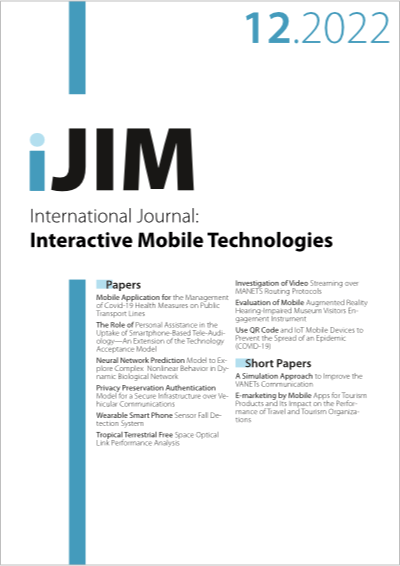The Role of Personal Assistance in the Uptake of Smartphone-Based Tele-Audiology—An Extension of the Technology Acceptance Model
DOI:
https://doi.org/10.3991/ijim.v16i12.30133Keywords:
Hearing Healthcare, Tele-Audiology, Technology Acceptance Model, Mobile HealthAbstract
The arrival of new technologies in Hearing Healthcare is evident. The ability to connect hearing aids to smartphones via Bluetooth has opened up a host of new possibilities. By using an associated app, it is possible, among other things, to make an appointment with the Hearing Care Professional remotely. This function is nothing other than a further development of the classic Tele- Audiology. However, since the user base is mostly older, the question arises about the importance of the personal assistant in the clinic in setting up and explaining the technology for successful use. For this reason, a study was conducted among 110 patients who had already received such a form of intervention. For this purpose, the existing Technology Acceptance Model was further developed to include the latent variable of personal assistance. Existing basic hypotheses from other areas of application were confirmed and an additional relevant variable was identified. It could be concluded that due to a further shift of the patient generation towards baby boomers, the need for personal assistance might decrease.
Downloads
Published
How to Cite
Issue
Section
License
Copyright (c) 2022 Florian Ross, Atilla Wohllebe, Dr. Erik Diez

This work is licensed under a Creative Commons Attribution 4.0 International License.



